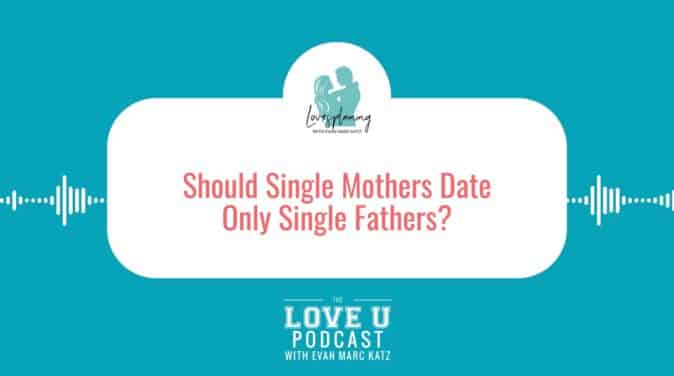Women Who Earn More Than Men – And The Men Who Resent Them!

- Dating, What Men Want
For Whitney Hess, a 25-year-old software designer in Manhattan, the tension that ultimately ended her recent relationships was all right there, in the digits on her pay stub.
The awkwardness started with nights out. She would want to try the latest downtown bistro, but her boyfriends, who worked in creative jobs that paid less than hers, preferred diners.
They would say, “Wow, you’re so sophisticated,” she recalled. A first look at her apartment, a smartly appointed studio in a full-service building in TriBeCa, would only reinforce the impression. “They wouldn’t want me to see their apartments,” she said, because they lived in cramped surroundings in distant quadrants of Brooklyn or the Bronx.
One of them, she said, finally just came out and said it. “Look,” Ms. Hess recalled him saying, “it makes me really uncomfortable that you make more money than me. I’m going to put that out on the table and try to get over it.”
But he never got over it, she said.
“The sad thing is that I really liked the guy,” she said. “If that hadn’t been an issue with him, we’d probably still be dating.”
Ms. Hess’s quandary is becoming more common for many young women. For the first time, women in their 20s who work full time in several American cities – New York, Chicago, Boston and Minneapolis – are earning higher wages than men in the same age range, according to a recent analysis of 2005 census data by Andrew Beveridge, a sociology professor at Queens College in New York.
For instance, the median income of women age 21 to 30 in New York who are employed full time was 17 percent higher than that of comparable men.
Professor Beveridge said the gap is largely driven by a gulf in education: 53 percent of women employed full time in their 20s were college graduates, compared with 38 percent of men. Women are also more likely to have graduate degrees. “They have more of everything,” Professor Beveridge said.
The shift is playing out in new, unanticipated ways on the dating front. Women are encountering forms of hostility they weren’t prepared to meet, and are trying to figure out how to balance pride in their accomplishments against their perceived need to bolster the egos of the men they date.
A lot of young women “are of two minds,” said Stephanie Coontz, director of research at the Council on Contemporary Families, a research organization. “On one hand, they’re proud of their achievements, and they think they want a man who shares house chores and child care. But on the other hand they’re scared by their own achievement, and they’re a little nervous having a man who won’t be the main breadwinner. These are old tapes running in their head: ‘This is how you get a man.’ ”
YOUNG affluent women say they are learning to advertise their good fortune in a manner very different from their male counterparts. For men, it is accepted, even desirable, to flaunt their high status. Not so for many women.
“Very, very early in a date,” said Anna Rosenmann, 28, who founded a company called Eco Consulting LA, in Los Angeles, and earns up to $150,000 a year, “a man will drop comments on how much his sales team had made for the year, which meant his bonus was blah, blah, blah.”
But, she said, “that’s not how we were raised.”
Instead, she said, she starts out dates being discreet. “I don’t talk about myself,” she said. “When people ask me, I’m going to be very honest. But I definitely don’t say, ‘My name’s Anna, I’m 28 and I own a business.’ ”
Ms. Rosenmann said that dating considerably older men helps her avoid innuendos from younger men who feel threatened by her professional success. She said that when she has gone out at night with men her own age and has to turn in early to be fresh for work, they have commented , “Oh, Anna’s an adult, she has a real job.”
So as not to flaunt her own salary, Lori Weiss, a 29-year-old lawyer in Manhattan, has found herself clipping price tags off expensive clothes she buys on shopping binges, or hiding shopping bags in the closet just so men she was dating would not see them lying around and feel threatened by her spending power.
“A lot of guys don’t want to admit they have a problem with it,” she said, referring to income disparity. “They don’t want to be ‘that guy.’ But I think it’s ingrained.”
She said one boyfriend “wasn’t too comfortable with me paying for things” on dates, so to make him feel better, she would surrender to his wishes. The two would just “stay home and cook, or just get something cheap,” she said. “We’d skip a movie.”
Women said the income disparity becomes obvious in all facets of dating: where you live, what you like to do for fun and how you travel. It often comes down to minimizing who they are – successful, focused women – with their dates, who may be lagging a bit behind.
Although these women often say it is men who have issues around their higher salaries, sometimes it is the women themselves who are uncomfortable with the role reversal.
Hilary Rowland, 28, bought her first condominium when she was 18, using money she had earned from an online business started when she was 15. Last spring, Ms. Rowland, who lives in New York, started dating a 34-year-old musician.
“I usually always fly business or first,” she said in an e-mail message. “The one trip where he paid for the flight – we stayed at a friend’s place – he didn’t tell me the details, then flew us economy on a 6 a.m. flight with a two-hour stop-over, from Salt Lake City, to save money. I would have rather paid myself and flew business at a regular hour.”
“When we broke up,” she added, “he was upset that I gave my ‘ex’ more gifts than I gave him. Meanwhile, the only gift I’d gotten from him was a small notepad.”
Ms. Rowland, like some other women interviewed, said that she has come to the conclusion that it would be easier to date someone in the same economic bracket.
“I love traveling, going to the opera and good restaurants,” she said. “It doesn’t have to be Per Se, but good food is important in my life. It’s sometimes hard to maintain the lifestyle I’m used to when I’m in a relationship with a guy who makes less than me, since I don’t want to be paying for the guy I’m with all the time.”
The discomfort over who pays for what seems to be not really about money, plain and simple. Instead, it is suggestive of the complex psychology of what many of these women expect from their dates (for him to be a traditional breadwinner) and what they think they should expect (Oh, I just want him to be a nice guy).
On a first date at a lounge in Hell’s Kitchen, Thrupthi Reddy, 28, a brand strategist in Manhattan, watched her date down several cocktails to her one, then not even flinch when she handed the waitress her credit card. Initially miffed, she recognized her own contradictions.
“You wonder if you’re being a hypocrite,” she recalled, “because all date long I’m telling him how independent I was, and how annoying it was that men wouldn’t date strong independent women.” (The relationship ended after six months.)
Michael R. Cunningham, a psychologist who teaches in the communication department at the University of Louisville, conducted a survey of college women to see if, upon graduation, they would prefer to settle down with a high school teacher who has short workdays, summers off and spare energy to help raise children, or with a surgeon who earns eight times as much but works brutal hours. Three-quarters of the women said they would choose the teacher.
The point, Professor Cunningham said, was that young professionally oriented women have no problem dating down if the man is secure, motivated in his own field and emotionally supportive.
At least, that’s what their responses are in surveys. Talk about the subject with women a bit older – those who have been out of college long enough to be more hardened – and what you hear is ambivalence, if not downright hostility, about the income disparity.
Jade Wannell, 25, a producer at a Chicago ad agency who lives in a high-rise apartment building, started dating a 29-year-old administrator at a trucking company last year. “He was really sweet,” she said. But “he didn’t work many hours and ended up hanging out at home a lot. I was bored and didn’t feel challenged. He would finish work at 3 and want to go to the bar. The college way of life is still in them at that age. All they want to do is drink with the boys on Saturday. I was like ‘Let’s go to an art gallery’ and all he wanted to do was go to the bars.”
TO her, his lack of income masked a greater problem: a lack of drive.
“I have to say that I didn’t like his career, I didn’t think he had the goals of someone I would eventually like to be with or have respect for,” she said, adding, “It wasn’t the job, it was the passion.”
Unyi Agba, 27, an advertising executive with a small firm in Boston, almost always dates professional men, but when she goes out with someone earning less money, there is tension. “This is a topic that’s traveled in my own female circles a lot in the last year,” she said. Across a restaurant table with a man who earns less, “it’s never explicitly said, but there are nuances,” she said. “Things are said like, ‘Boy I’m going to be really broke after this dinner.’ ”
And her response?
“Silence.”
Okay, guys, what are YOUR thoughts on this thorny issue?








Comments